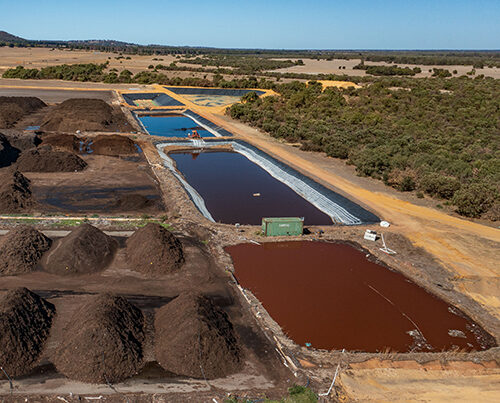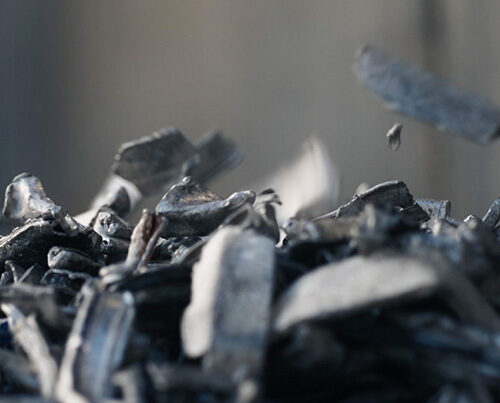Checking out recycling opportunities
When a plane has been permanently grounded, it does not mean that all of its parts have become obsolete. On the contrary, there are many components that can still be used: the landing gear, engines, navigation and communication instruments and many other pieces can be removed, carefully checked and, if they pass the test, given a certificate allowing them to be used as spare parts. However, at the end of the process, there are still large volumes of metal and recyclable materials left over. Which was why TSR took a closer look at the possibilities of recycling and marketing these materials when two A340 Airbuses were dismantled recently.
Transporting the planes was a challenge
To be able to do this work, TSR Recycling GmbH not only had several different departments working on the project, it also collaborated with REMONDIS and the airplane recycler MoreAero. The long-term goal here is clear: to draw up a sustainable and comprehensive plane recycling concept that enables previously unused raw materials to be recovered for reuse. The trickiest part of the project? To transport the two dismantled China Eastern Airbuses from the decommissioned airport in Parchim (Mecklenburg-Vorpommern) to TSR’s branch in Hamburg.
With old planes normally being sent to businesses abroad where they are scavenged for spare parts, it has been practically impossible to recover the unused raw materials.
“We’re really pleased to have had MoreAero’s help here as they’re so experienced and know about and meet all the red tape requirements affecting companies working in airline operations,” commented André Zick, TSR branch manager (2. Hafenstraße) in Hamburg. With old planes normally being sent to businesses abroad where they are scavenged for spare parts, it has been practically impossible to recover the unused raw materials. The second challenge: the manufacturers do not provide information about what, where or how many materials and hazardous substances have been installed in the planes.
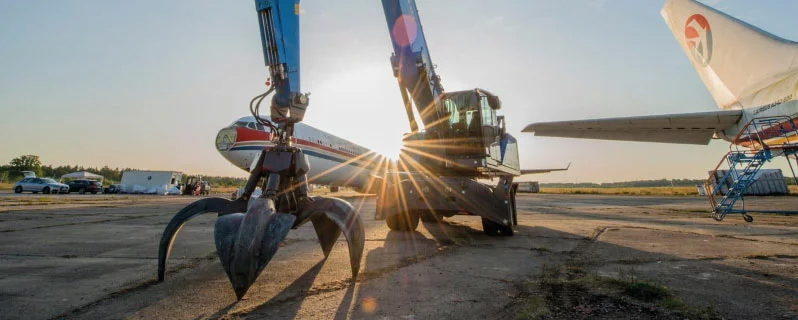
130 tonnes of aluminium were recovered
The stages needed after this – such as shredding and recycling the materials – are normal everyday work for TSR and REMONDIS. “We were able, for example, to recover around 130 tonnes of aluminium from the planes. REMONDIS took over the task of recycling the other substances such as plastics, mineral fibres and operating materials,” explained Dr Sebastian Jeanvré, project engineer at TSR in Lünen. Tim Wilms, project manager and key account manager at TSR, summed up the project: “Dismantling airplanes is a really exciting subject as far as we’re concerned.
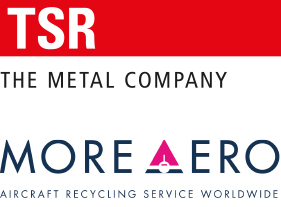
It would allow us to enter a new and innovative field and enable us to recover raw materials so they can be reused. We would also be filling an important niche market in Germany. Such projects are also a great way to learn more about the different models of airplane and the type and quality of materials used to make them and a useful opportunity for us to sound out the potential of this business,” he added.
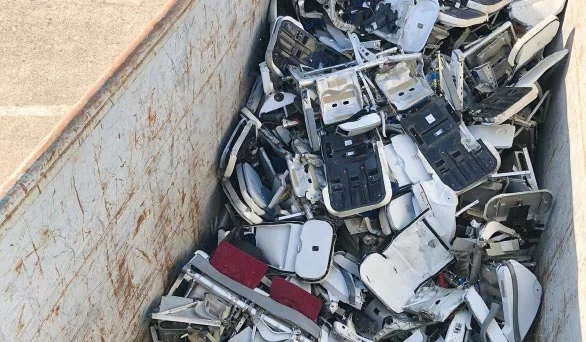
The dismantling of the two A340 Airbuses at the decommissioned airport in Parchim was a crossdivisional and cross-company project for both TSR and REMONDIS
Image credits: © REMONDIS










